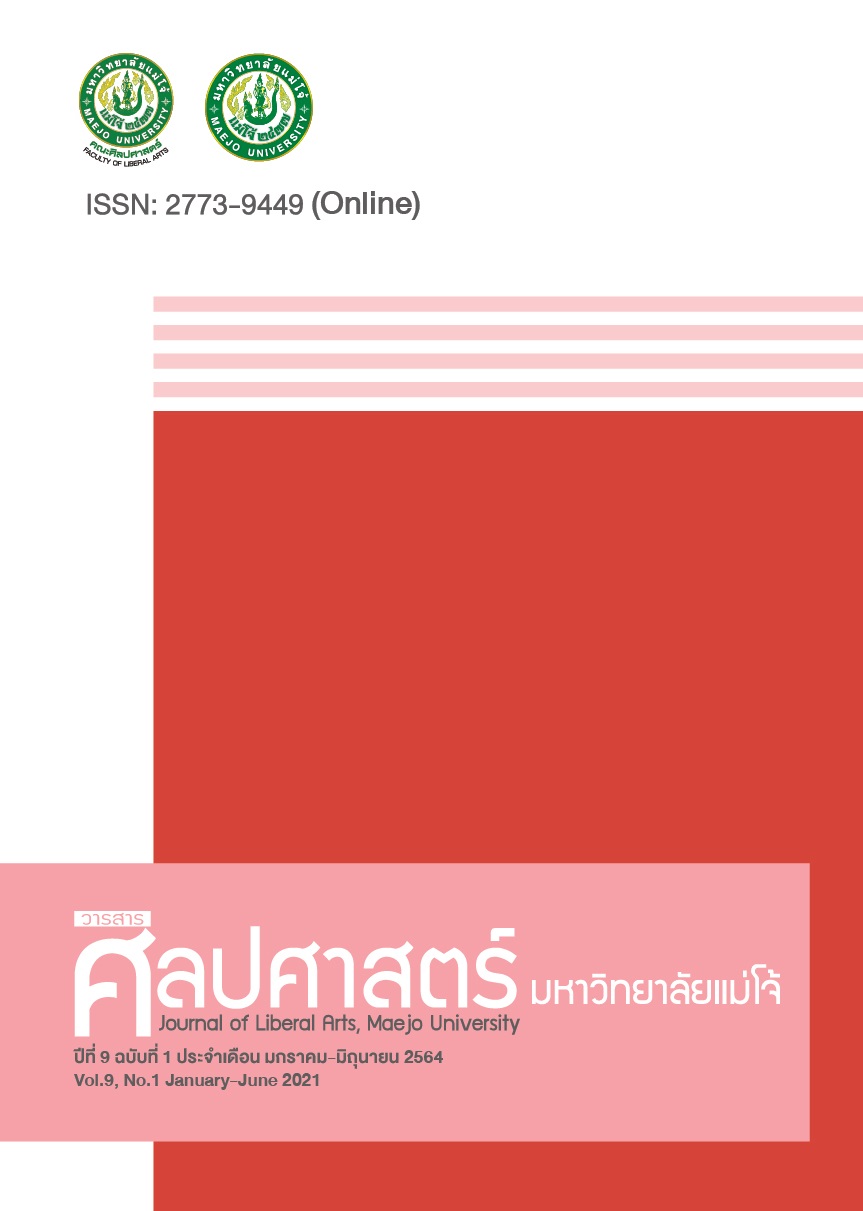Perceptions and Prevention Behaviors of Coronavirus Disease 2019 (COVID-19) of High School Students in Bangkok
Main Article Content
Abstract
This research aimed to study the perceptions and preventive behaviors of the COVID-19, and the relationship between perceptions and preventive behaviors of the COVID-19 among high school students in Bangkok. The sample group was high school students in schools under the Office of the Basic Education Commission (OBEC), the Secondary Educational Service Area Office Bangkok. The research instruments were two questionnaires asking about 1) the perceptions of COVID-19 and 2) the preventive behaviors of COVID-19. The data were analyzed by using descriptive statistics and The Pearson product-moment correlation coefficient.
The research showed that the sample group perceived the risks and the severity of COVID-19 at the high level, as well as their preventive behaviors towards COVID-19. The correlation between the perceptions of COVID-19 and the preventive behaviors of COVID-19 was found to be positive correlation (r = 0.436) with statistically significant at the .01 level.
Article Details
References
จิราพร บาริศรี, กฤติญา บุญเพิ่ม, นภัสภรณ์ ภวภูตานนท์ ณ มหาสารคาม, พิมลศักดิ์ นิลผาย และปิ่นบุญญา ลำมะนา, (2563). พฤติกรรมการป้องกันโรคโควิด-19 (COVID-19) ของนักศึกษามหาวิทยาลัยราชภัฏร้อยเอ็ด. วารสารการบริหารนิติบุคคลและนวัตกรรมท้องถิ่น. 6(6), 37-45.
ธานี กล่อมใจ, จรรยา แก้วใจบุญ และทักษิกา ชัชวรัตน์. (2563). ความรู้และพฤติกรรมของประชาชนเรื่องการป้องกันตนเองจากการติดเชื้อไวรัสโคโรนา สายพันธุ์ใหม่ 2019. วารสารการพยาบาล การสาธารณสุข และการศึกษา. 21(2), 29-39.
นฤชา สิงห์ธรรม, วัชรพล วิวรรศน์ เถาวพันธ์, กิตติพร เนาว์สุวรรณ, เฉลิมชัย เพาะบุญ และสุทธิศักดิ์ สุริรักษ์. การรับรู้และพฤติกรรมการป้องกันโรคติดเชื้อไวรัสโคโรนา 2019 (COVID-19) ของทันตาภิบาล สังกัดกระทรวงสาธารณสุข. วารสารสถาบันบำราศนราดูร. 14(2), 104-115.
มิ่งขวัญ ศิริโชติ. (2563). ความรู้และพฤติกรรมของนักเรียนระดับชั้นมัธยมศึกษาต่อการป้องกันโรคติดเชื้อไวรัสโคโรนา 2019 (COVID-19). วารสารวิชาการ สถาบันวิทยาการจัดการแห่งแปซิฟิค (สาขามนุษยศาสตร์และสังคมศาสตร์). 6(2), 99-109.
อุษา บิ้กกิ้นส์. (2557). การรณรงค์เพื่อแก้ปัญหาพฤติกรรมเมาแล้วขับรถจักรยานยนต์ของวัยรุ่น. วารสารนิเทศศาสตร์และนวัตกรรม นิด้า. 1(1), 69-83.
เอมอัชฌา วัฒนบุรานนท์. (2563). โมเดลเลิฟกับการจัดการเรียนรู้สุขศึกษา. วารสารศิลปศาสตร์ มหาวิทยาลัยแม่โจ้. 8(1), 233-245.
เอมอัชฌา วัฒนบุรานนท์ และปัณณวิชญ์ ปิยะอร่ามวงศ์. (2563). การจัดการเรียนรู้สุขศึกษาในโรงเรียนภายใต้การแพร่ระบาดของโรคติดเชื้อไวรัสโคโรนา 2019 (COVID-19): แนวคิดและแนวปฏิบัติ. วารสารสถาบันบำราศนราดูร. 14(3), 192-202.
ฮูดา แวหะยี. (2563). การรับรู้ความรุนแรงและพฤติกรรมการป้องกันโรคติดเชื้อไวรัสโคโรน่า 2019 (โควิด-19) ของวัยรุ่นในเขตตำบลสะเตงนอก อำเภอเมือง จังหวัดยะลา. วารสารวิชาการสาธารณสุขชุมชน. 6(4), 158-168.
Becker, M.H. (1974). The health belief model and sick role behavior. In M. H. Becker (Ed.), The health belief model and personal health behavior (pp. 82-92). Thorofare, NJ: Charles B. Slack.
Crobach, L.J. (1990). Essentials of Psychological testing. (5th Edition). New York: Harper Collins.
He, F., Deng, Y & Li, W. (2020) Coronavirus disease 2019: What we know?. Journal of Medical Virology. 92(7), 719-725.
Yamane, T. (1967). Statistics: An Introductory Analysis. (2nd Edition). New York: Harper and Row.
Zhu, N., Zhang, D., Wang, W., Li, X., Yang, B., & et al. (2020) A novel coronavirus from patients with pneumonia in China, 2019. The New England Journal of Medicine. 382(8), 727-733.
Wiersma, W., & Jurs, S. G. (2009). Research methods in education. (9th Edition). Allyn-Bacon: Boston, MA.
World Health Organization. (2020). Naming the coronavirus disease (COVID-19) and the virus that causes it. (Online). Retrieved January 19, 2020, Website: https://www.who.int/emergencies/diseases/novel-coronavirus-2019/technical-guidance/naming-the-coronavirus-disease-(covid-2019)-and-the-virus-that-causes-it
Worldometer. (2020). COVID-19 coronavirus pandenmic. (Online). Retrieved January 24, 2020, Website: https://www.worldometers.info/coronavirus/

